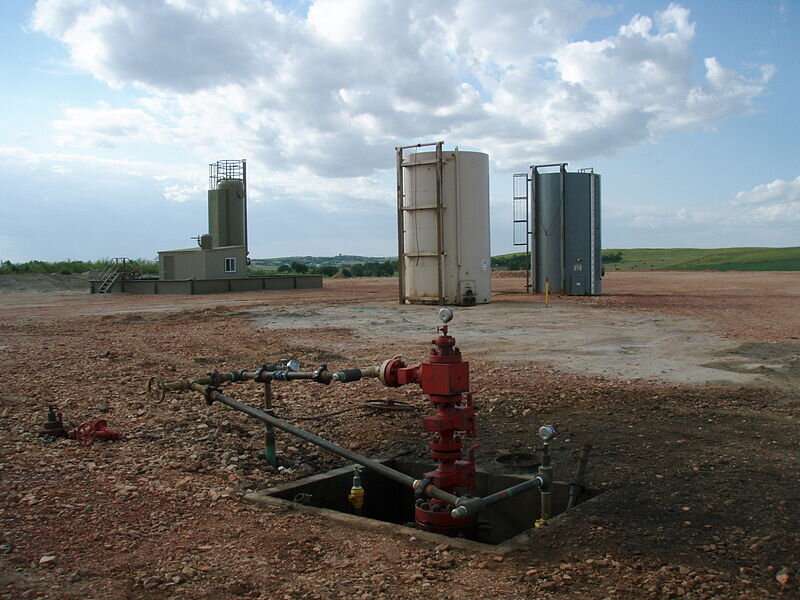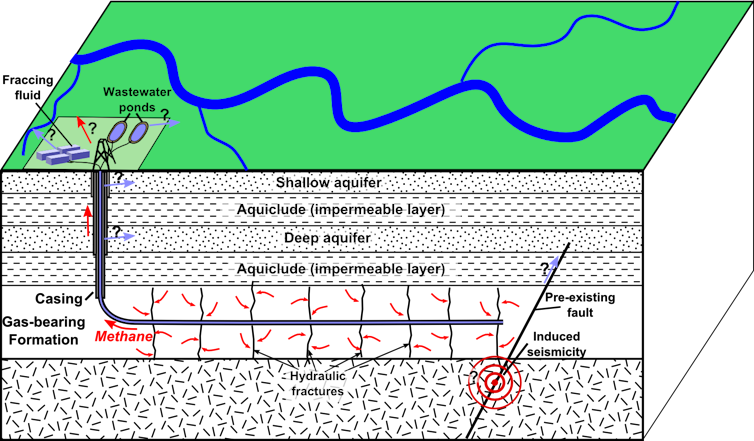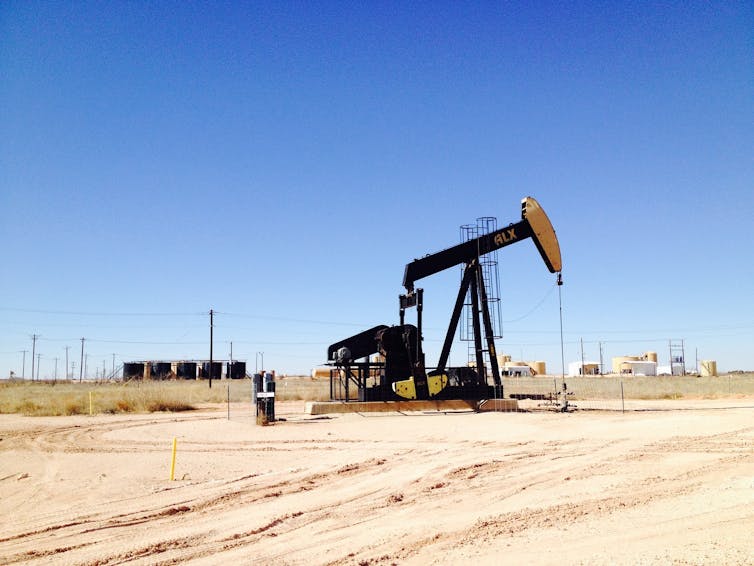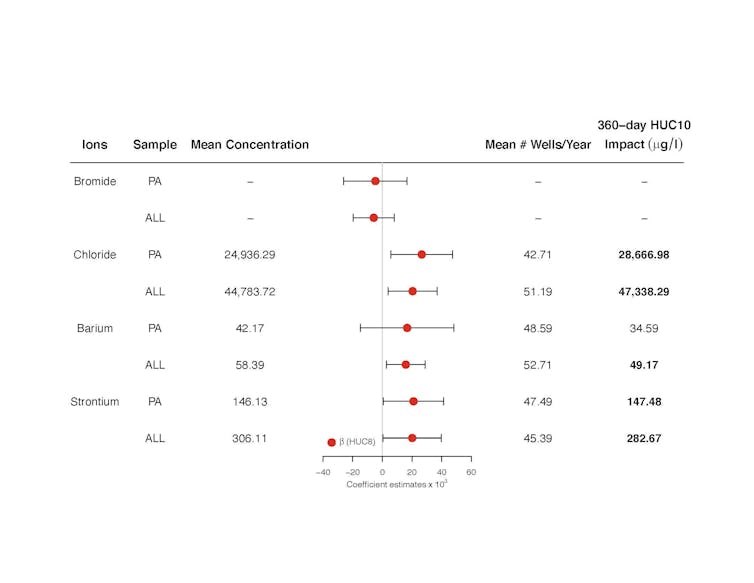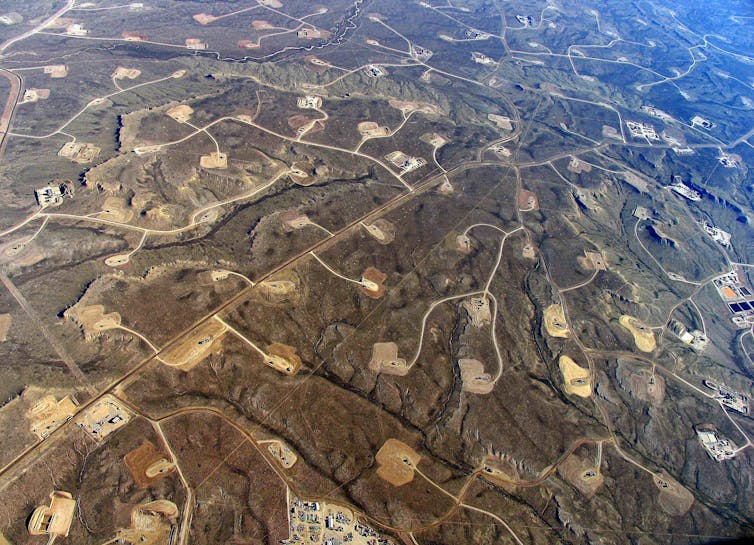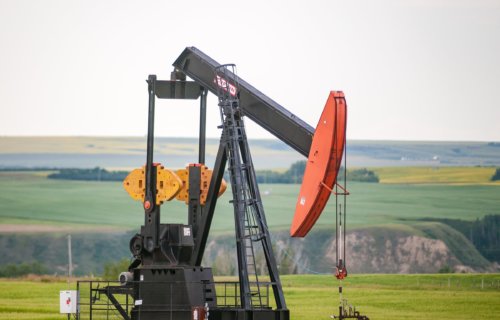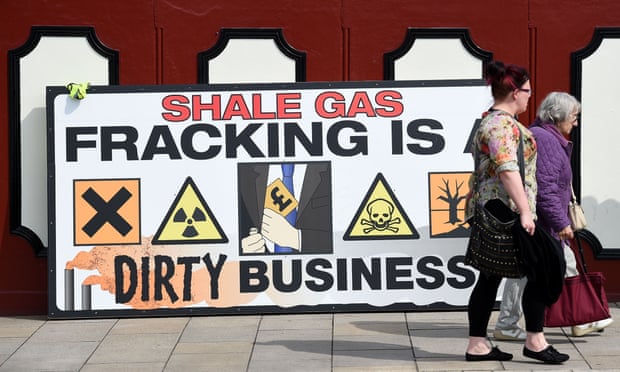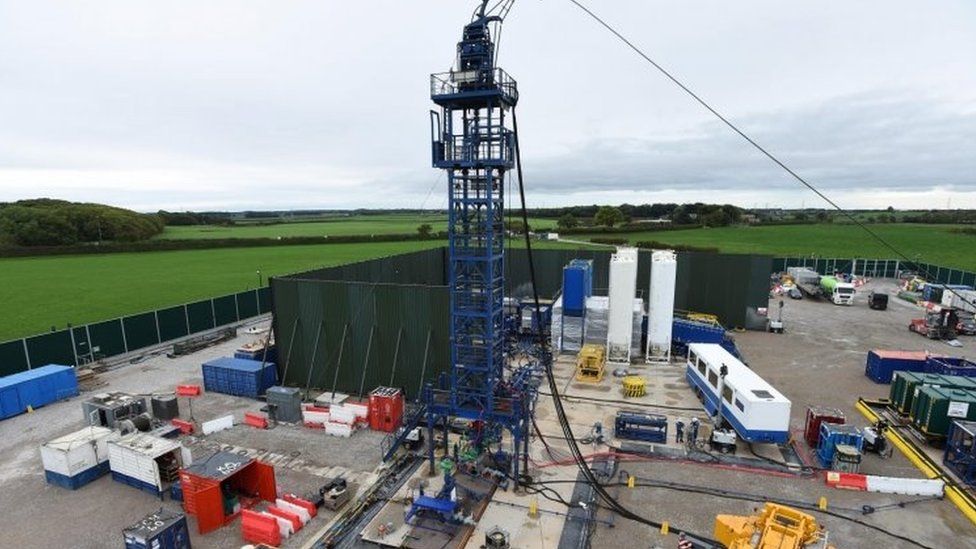New Analysis of Fracking Science (nearly 2,000 studies) Finds Grave Health, Environmental Justice, and Climate Impacts
Major report from health experts and scientists who have closely assessed a decade of science on fracking reveals alarming trends for people and the environment.
WASHINGTON - A new report from leading scientists, doctors, and environmental experts examining nearly 2,000 academic studies, government reports, and investigative reporting finds that drilling, fracking, and the entire fracked oil and gas cycle impose grave harms to human health and well-being and that those problems cannot be mitigated.
Today, Concerned Health Professionals of New York and Physicians for Social Responsibility released the Compendium of Scientific, Medical, and Media Findings Demonstrating Risks and Harms of Fracking, seventh edition, which tracks, assembles, and analyzes key trends in the rapidly growing body of evidence about health, climate, and environmental justice consequences of drilling, fracking, and associated infrastructure.
Overwhelmingly, evidence demonstrates that these activities are dangerous to public health, the environment, and the climate, and that there are fundamental problems with the entire life cycle of operations associated with fracking. Emerging science also shows that fracking is a grave environmental justice issue, with communities of color, Indigenous people, and impoverished communities bearing disproportionate harm.
The Compendium reviews nearly 2,000 academic studies, government reports, and investigations of data by journalists about the environmental and health impacts of drilling and fracking. It is increasingly important to consider the whole body of evidence and identify key trends. That’s what the Compendium uniquely does, allowing the public, elected officials, and regulators to consider the whole body of evidence, identify key trends, and utilize important new research as it appears, promoting health and potentially saving lives.
Sandra Steingraber, PhD, co-founder of Concerned Health Professionals of New York and an author of the Compendium, said, “Our knowledge about the dangers of fracking is now both broad and deep. All together, thousands of scientific studies, reports, and investigations show us that extracting oil and gas by shattering the nation’s bedrock with water and chemicals creates fundamental, intrinsic, unfixable problems. Toxic pollution, water contamination, earthquakes, radioactive releases, and methane emissions follow fracking wherever it goes. Some of these problems get worse after depleted wells are abandoned, and no set of regulations is capable of preventing harm.”
- With hundreds of new peer-reviewed scientific studies published in the past year alone, several trends in the evidence have been increasingly well-documented. Among more than a dozen emerging trends:
- Fracking poses serious health harms to people, especially those living in proximity not only to drilling and fracking but also to associated infrastructure like compressor stations and gas-fired power plants.
- Fracking raises human rights and environmental justice issues, disproportionately affecting people of color and low-income communities
- Health problems associated with fracked gas include cancers, asthma, respiratory distress, rashes, heart problems, and mental health problems.
- Multiple studies of pregnant women living near fracking operations across the nation show impairments to infant health, including birth defects, preterm birth, and low birth weight. Preterm birth and low birth weight are the leading causes of infant death in the U.S.
- Fracking and natural gas are incompatible with climate solutions.
Pediatrician Edward Ketyer, M.D., F.A.A.P., of Physicians for Social Responsibility/Pennsylvania, said, “The fracking science Compendium is an essential resource for health professionals like myself who are addressing how terribly damaging fracking is to the health of our patients and the communities we live in. Dozens of peer-reviewed studies contained in the Compendium indicate clearly that women and children are most vulnerable to the impacts of pollution coming off every piece of fracking infrastructure. As a pediatrician, I’m very concerned that children bear the greatest burden of all as they face cradle-to-grave health impacts from health-damaging chemicals and emissions – to say nothing of the stability of the planet’s climate system which we all depend on. It is clear from this report that fracking has never been done safely anywhere; it is inherently dirty and dangerous, and industry rules and government regulations can’t fix that fact.”
These health problems are born disproportionately by communities of color and impoverished communities. Significant evidence now makes clear that fracking is a significant and growing environmental injustice.
Laura Dagley, BSN, RN, of Physicians for Social Responsibility in Pennsylvania, said, "As a nurse and PSR staffer, I advocate for the health of my communities. Through my work, I have met many people whose lives are negatively impacted by fracking. From seeing the stress that fracking infrastructure has brought to their daily lives, to hearing of many visits to the doctor managing new asthma exacerbation or skin rashes, to feeling their fear as their neighbors' children suffer from a rare cancer, I am reminded of the real people behind the data. With fracking literally in their backyards, many of these individuals struggle to have their voices heard. They do not have the time, money, or numbers in their rural communities to draw attention to the negative toll fracking is taking on their lives. The Compendium compiles a large body of data demonstrating fracking’s harm and succinctly summarizes the research and reports. It is a powerful tool to show policymakers the evidence that fracking is harming people."
At a broader scale, the evidence is overwhelming that fracking is significantly exacerbating climate change and is responsible for the current surge in global levels of methane, a greenhouse gas 86 times more potent at trapping heat than carbon dioxide over a twenty-year period. Methane escapes into the atmosphere all along the gas extraction, processing, and distribution system, at significant rates that exceed earlier estimates by a factor of two to three and in ways that cannot be mitigated or eliminated through regulations.
Kathleen Nolan, MD, MSL, of Physicians for Social Responsibility and Concerned Health Professionals of NY, said, “Detailed and comprehensive research now demonstrates decisively that fracking and its related activities release significant amounts of methane into the atmosphere, making the process calamitous for climate change. Science is telling us that drilling and fracking are incompatible with any meaningful effort to mitigate carbon emissions and that to curb global warming most quickly, we need to stop permitting and subsidizing fracking. Just as we have learned to give up smoking to protect our lungs, we must give up fracking to protect our atmosphere, the air that we all breathe.”
From the Main Findings of the Compendium, “As fracking operations in the United States and abroad have increased in frequency, size, and intensity, a significant body of evidence has emerged to demonstrate that these activities are dangerous in ways that cannot be mitigated through regulation. Threats include detrimental impacts on water, air, climate stability, public health, farming, property values, and economic vitality… Our examination uncovered no evidence that fracking can be practiced in a manner that does not threaten human health directly and without imperiling climate stability upon which public health depends.”
Several experts are available, upon request, for interviews about the new report and the issue more broadly.
